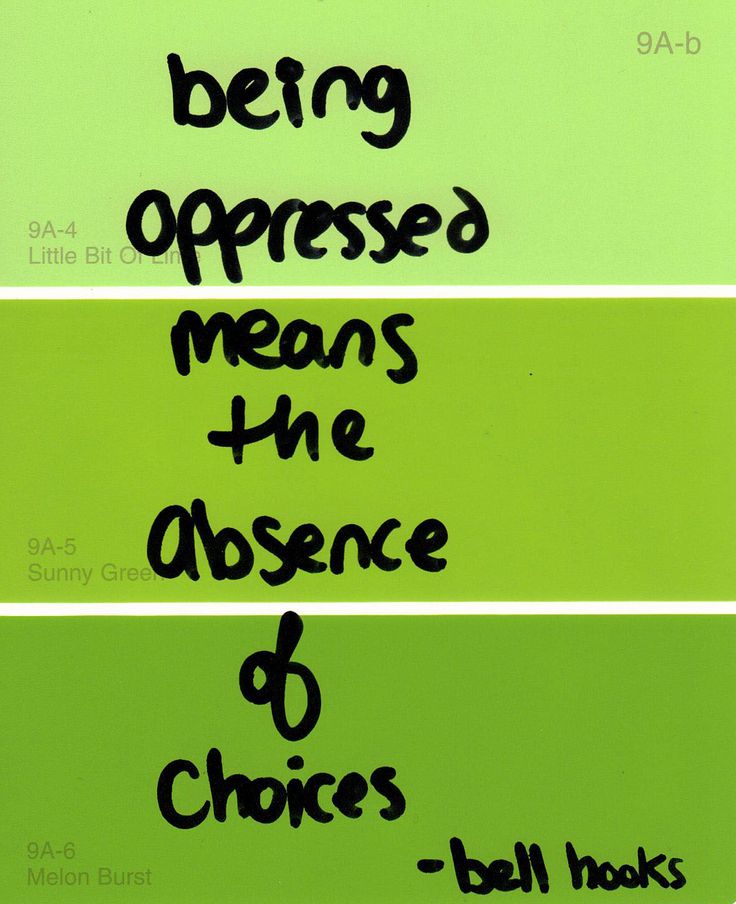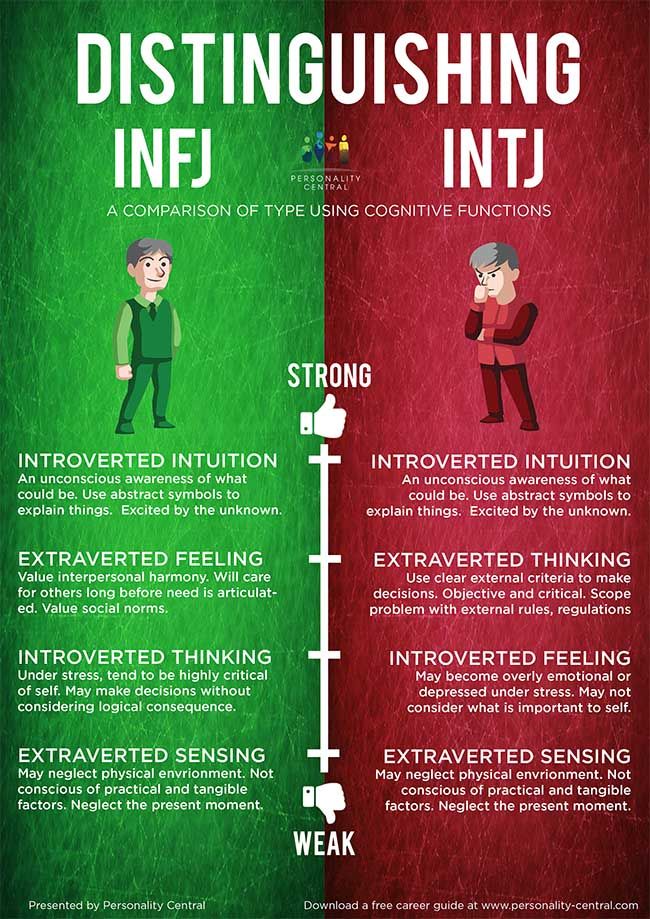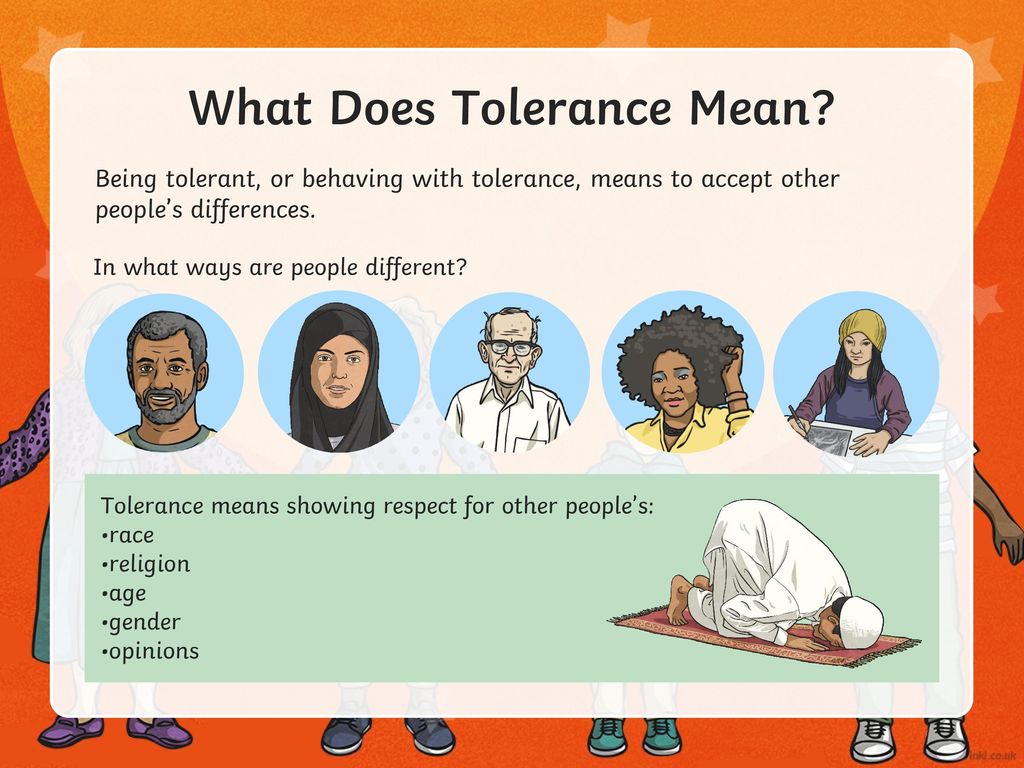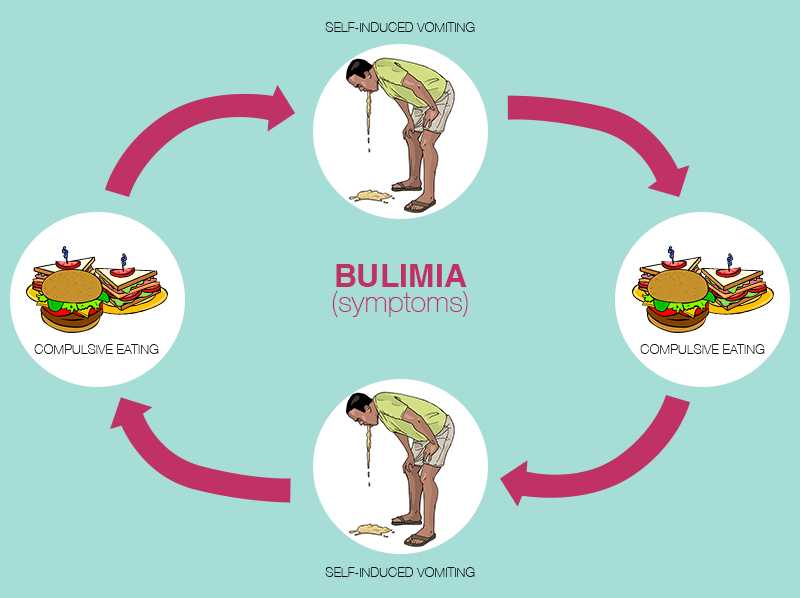What causes headache after drinking
Treatments, Home Remedies, Causes, and Symptoms
Hangover headaches are no fun. It’s well known that drinking too much alcohol can cause a variety of symptoms the next day. A headache is just one of them.
It’s easy to find tons of purported hangover headache “cures” that you can make at home and even buy in stores. But most of them have no reliable scientific research that proves they work.
The best way to avoid a hangover headache is to limit how much alcohol you drink in one sitting. Still, we’ve also got some tips that can help you reduce your chances of having a headache, and a few to ease your pain in case you’ve already got one.
First, let’s talk about some of the remedies that do have some scientific evidence to back them up.
1. Vitamin B6
Vitamin B6 is an essential nutrient that’s found in all sorts of common foods, such as poultry, potatoes, and fruit. Alcohol reduces your levels of B vitamins, making it harder for your body to metabolize and eliminate alcohol.
Loading up on extra B6 with a hearty meal or taking a dietary supplement can help your body get rid of alcohol faster. This may help you avoid a hangover headache, whether you take B6 before or after you drink.
2. NSAIDs
Nonsteroidal anti-inflammatory drugs (NSAIDs) can help decrease inflammation in your body associated with drinking. NSAIDS block the production of enzymes that lead to headaches and migraines. Taking a small dose of NSAIDs may help ward off a hangover headache.
Just take it easy on the doses. Combined with alcohol, NSAIDs can increase your risk of stomach bleeding.
Never take acetaminophen (Tylenol) when you drink or when you’re hungover. Acetaminophen makes it harder for your body to process alcohol and can damage your liver.
Your liver is already working overtime to get excess alcohol out of your body. Too much Tylenol — over 4,000 mg in a 24-hour period — while hungover can lead to dangerous liver swelling or liver failure.
3.
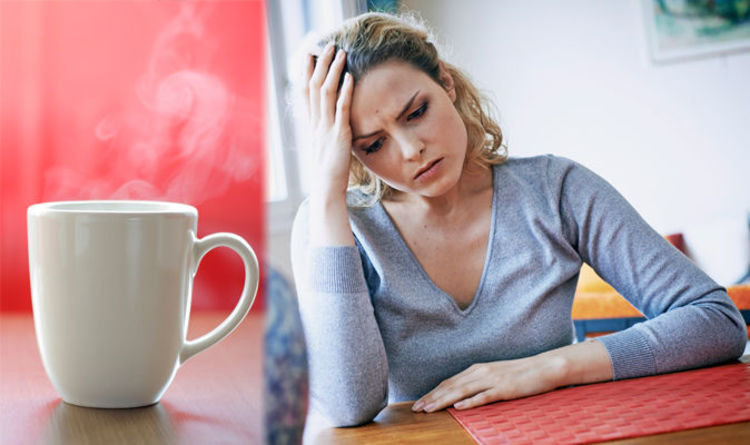 Fitness drinks
Fitness drinksHydration is a must when you drink. Alcohol can dehydrate you and drain your body of electrolytes.
Drinking a beverage that’s packed with additional electrolytes can help you restore your electrolyte balance and remain hydrated.
A 2014 study from the Center for Weight and Health at UC Berkeley found that fitness drinks like Gatorade were better for quick hydration after intense exercise. So they may get you hydrated faster than regular water after a night of drinking.
Just don’t overdo it. Some drinks can contain up to 36 grams of sugar for a 20-ounce serving. Excess sugar can make your hangover symptoms worse.
4. N-acetyl-cysteine
N-acetyl-cysteine (NAC) is a natural amino acid that helps your body fight against the toxic effects of acetaldehyde. Acetaldehyde is a chemical compound associated with many hangover symptoms, including headaches. As acetaldehyde levels rise, your glutathione levels decrease. Glutathione is a naturally occurring antioxidant that prevents cell damage in your liver.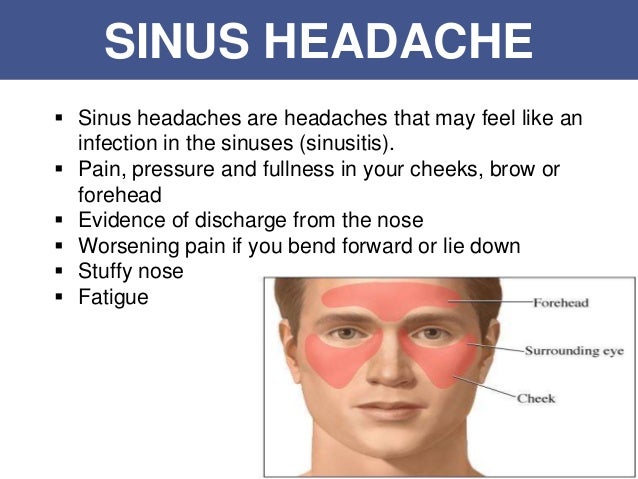
Take a 200- to 300-milligram (mg) NAC supplement at least half an hour before you start drinking. This could reduce the impact of acetaldehyde on your liver and make your hangover symptoms much less severe.
5. Light exercise
In general, exercising the day after you drink isn’t recommended.
But light exercise can help your body speed along its metabolic processes, ridding your body of alcohol and related toxins more quickly. Just make sure you stay hydrated since your body is already battling the effects of dehydration while you’re hung over.
Already nursing that hangover headache? Here are eight tips to minimize your pain.
1. Make sure to eat
Eat before, during, and after consuming alcohol. Here are a few reasons why this helps:
- Eating helps keep your blood sugar levels balanced. Low blood sugar can make a hangover headache worse.
- Keeping your blood sugar levels up can also limit how much acid builds up in your blood. This may prevent headaches as well as other symptoms, like nausea and exhaustion.
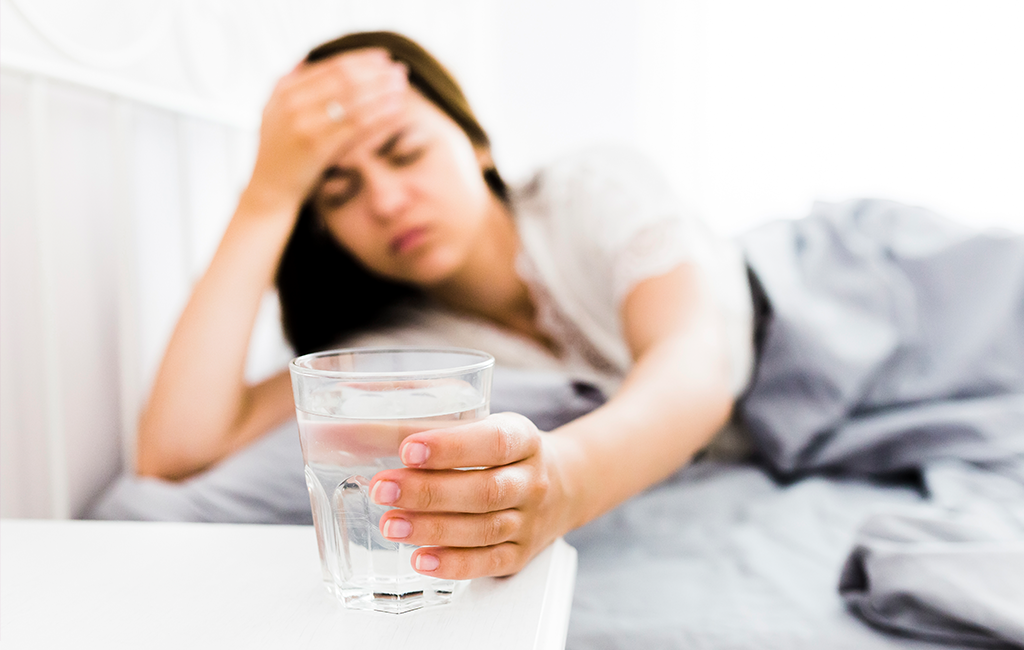
- Drinking causes a loss of vitamins that can lead to hangover symptoms, such as headache. Eating can keep your vitamin levels up, and potentially prevent some of those hangover symptoms.
2. Drink water
Try this: Have a glass or bottle of water with every drink.
Or, try drinking water both before and after you have alcohol. Have 1 cup or a 16-ounce bottle of water for every 12-ounce beer or 4- to 6-ounce cocktail you drink.
The following drinks can all help you stay hydrated and minimize hangover headaches:
- good ol’ plain water
- Gatorade or Powerade
- coconut water
- alkaline water enhanced with additional electrolytes, such as potassium and magnesium
Why? because alcohol’s a diuretic — it causes your body to increase how much urine it produces. This makes you lose fluids and electrolytes at a faster rate, so you’ll get dehydrated much more quickly. And if you end up vomiting from having too much alcohol, you’ll lose even more fluids.
Preventing dehydration means your hangover symptoms will be much less severe, if you have any at all. And hydration has plenty of other benefits, too.
3. Choose light-colored drinks
The darker the drink, the worse your hangover may be. This is because distilled, dark-colored drinks like whiskey, bourbon, and brandy contain large amounts of congeners.
Congeners result from the distillation or fermentation process used to produce these darker liquors. Some common congeners include:
- tannins
- acetone
- acetaldehyde
Congeners are much more likely to result in hangover symptoms, including headaches. Opt for light-colored drinks like vodka to minimize your hangover blues the day after.
4. Know your limits
This one’s straightforward: Don’t feel pressured to drink more than you’re comfortable with, or at all, if you’re not feeling it. Your limits aren’t the same as everyone else’s, and you may not always feel like drinking when the people around you are.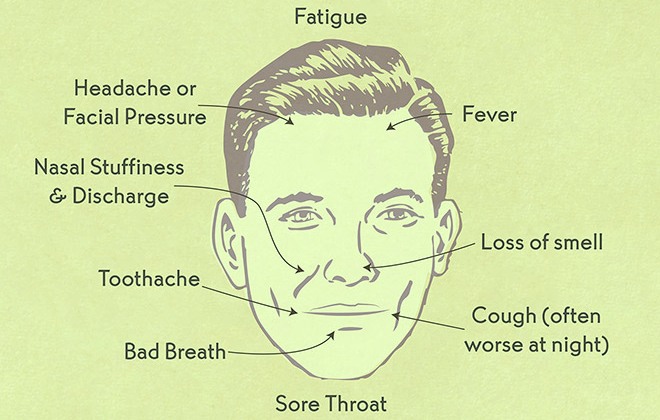
The second part of this is to listen to your body and use your past experiences as a reference. Maybe one drink is fine, but two or more starts to make you dizzy, lightheaded, and leads to a splitting headache the next day. Do what you feel most comfortable with.
5. Limit yourself
Your body metabolizes a typical serving of alcohol (about 16 fluid ounces) in the course of an hour or so. So, limit yourself to one drink per hour.
Spreading your alcohol consumption out over this time allows your body to flush out alcohol efficiently so that your blood alcohol concentration (BAC) stays low and is essentially cleared out of your body before the next day. This may help you avoid hangover symptoms altogether.
6. Skip “hair of the dog”
“Hair of the dog” refers to having some of the same alcohol the next morning that you had the night before.
Research proving that it works is limited. Plus, drinking more alcohol when your body is already dealing with hangover symptoms can either make them worse or only be a temporary fix before your symptoms return.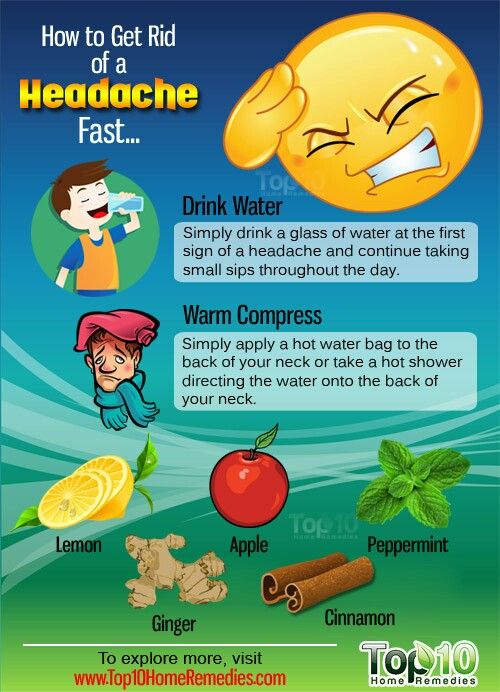
7. Skip the hangover recipes
Don’t listen to all the weird, outlandish recipes that are purported to help “cure” a hangover. Ingredients like raw eggs, spices, and the numerous preservatives used in processed or fast foods can make symptoms like nausea and vomiting worse.
Stick with basic, protein-packed, vitamin-rich foods like:
- bananas
- eggs
- nuts
- spinach
8. Remember, everyone is different
Not everyone feels the same effects of their drinking the morning after. In fact, your genes alone account for nearly half of the variables that contribute to how your body reacts to alcohol.
The other half of the variables that contribute to your hangover include:
- whether you’re male or female
- how much you weigh
- what medications you’re taking
- how much you’ve eaten
- enzyme deficiencies that make you flush or get sick when you consume alcohol
- how quickly you drink (one drink an hour vs.
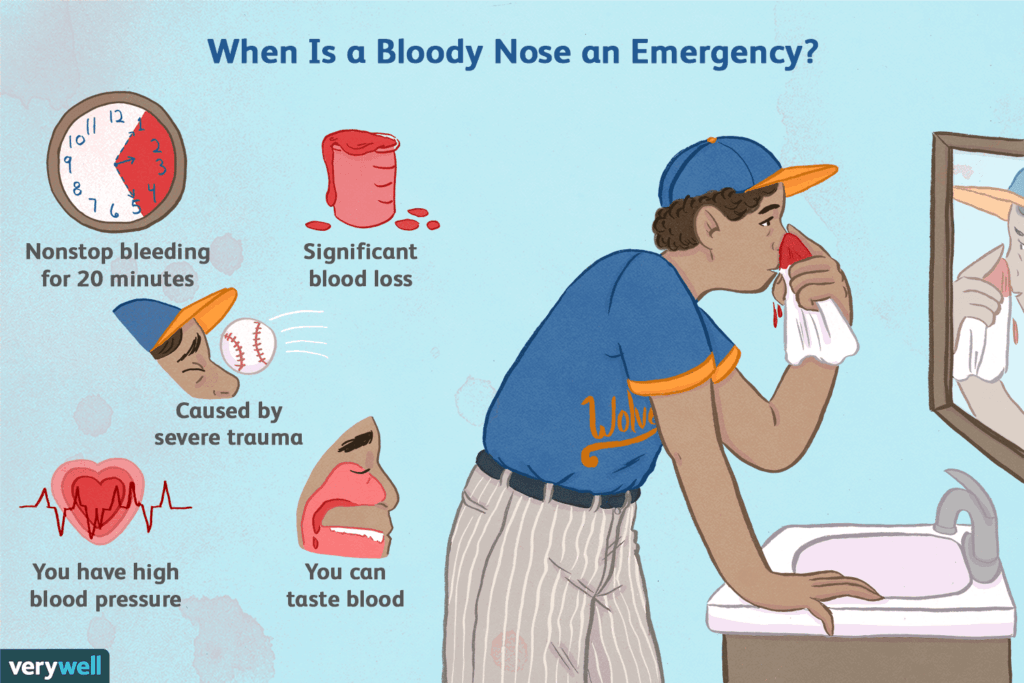 several drinks in a single hour)
several drinks in a single hour)
Alcohol contains a chemical called ethanol. As you drink alcohol, your stomach absorbs about 20 percent of this ethanol while your small intestine absorbs the rest. From the small intestine, ethanol travels into the bloodstream and throughout your body, including your brain.
Ethanol’s diuretic effects can also quickly dehydrate you, and a headache is just one of many symptoms of dehydration.
In your bloodstream, ethanol can cause headaches through vasodilation. This means that it makes your blood vessels expand. Vasodilation can stimulate certain brain nerves and result in pain. Alcohol also affects chemicals and hormones in your brain, such as histamine and serotonin, which contribute to the development of a headache.
Having too much alcohol at one time can lead to alcohol poisoning. If untreated, alcohol poisoning can have long-term consequences or may even result in death.
Get emergency medical help if you or anyone you’re drinking with notices any of the following symptoms:
- feeling confused
- skin changing color to dark blue or purple
- throwing up
- breathing slowing down (inhaling and exhaling fewer than eight times a minute)
- pausing between breaths (10 or more seconds)
- chills
- seizures
- falling unconscious and being unable to wake up
If you find that you’re not able to control how much you drink or stop yourself from drinking even if it’s causing you physical or emotional pain, you may need to seek treatment for alcoholism.
The first step towards confronting alcoholism is acknowledging that you have an alcohol problem, as well as the toll it may be taking on your life. Once you’ve reached this important milestone, talk to your doctor, a therapist, or a counselor who can help recommend treatment for alcohol dependence. Remember, you’re not alone.
The key to avoiding a hangover headache is moderation. Take it slow when you drink alcohol. Try sipping instead of gulping or pounding shots.
But it you’re already dealing with a hangover, try one or more of these tips to see what works for you. Start with eating healthy foods and drinking plenty of water before, during, and after drinking.
Taking preventative measures is the best way to stop a hangover headache before it ever starts.
Hangover Headache | Johns Hopkins Medicine
While not a disease we treat at the Johns Hopkins Headache Center, delayed alcohol-induced headaches are extremely common, disabling and costly to society. This material is provided for general education purposes.
This material is provided for general education purposes.
- How does alcohol affect the brain and the rest of the body?
- How little is enough to make an impact the next day?
- How long do the effects last?
- Are there any effective treatments?
How does alcohol affect the brain and the rest of the body?
Alcohol adversely affects the brain, the liver, the kidneys, the heart, blood vessels, the lining of the stomach, and various hormonal and regulatory systems. Even the word “intoxicated” indicates alcohol’s true nature: a toxic substance.
The first symptoms of ethanol intoxication on the brain are quite pleasurable for most people. You feel relaxed and happy, and with another drink or two you become boisterously enthusiastic — the life of the party. With increased alcohol consumption, your vision blurs, your reaction times slow, your perceptions are unreliable, and you become unsteady and uncoordinated. You start to lose your inhibitions, which can lead to another consequence of drinking: poor judgment.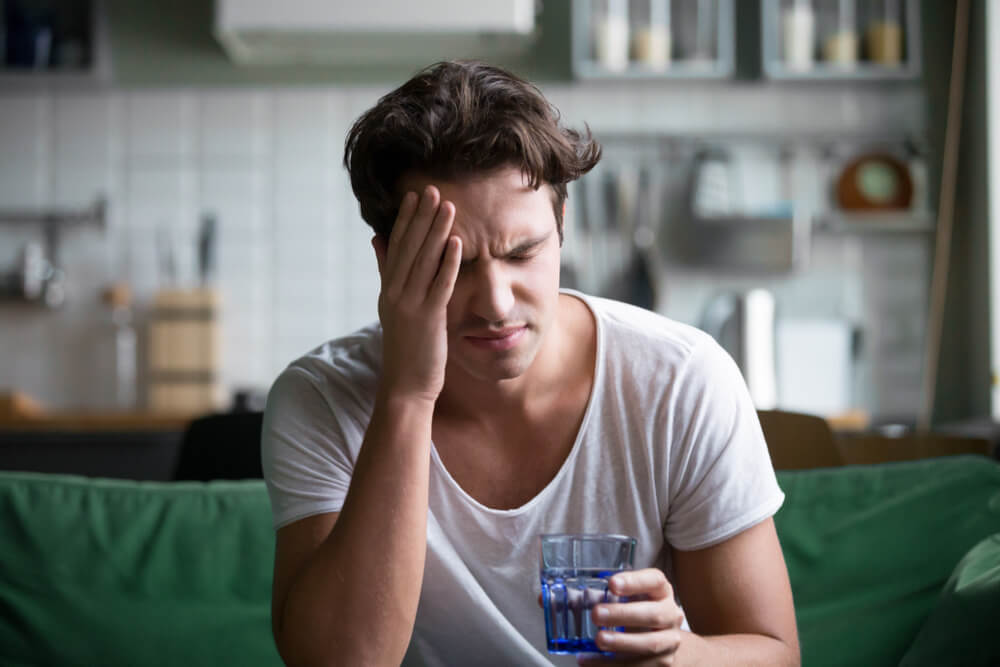 Speech begins to slur, and concentrating and “thinking straight” becomes impossible. At higher concentrations in the blood, hiccups, vertigo, confusion, lethargy, memory “blackouts,” vomiting, stupor, coma, slowed breathing and even death can result.
Speech begins to slur, and concentrating and “thinking straight” becomes impossible. At higher concentrations in the blood, hiccups, vertigo, confusion, lethargy, memory “blackouts,” vomiting, stupor, coma, slowed breathing and even death can result.
No one is exactly sure how ethanol causes its various effects, but once absorbed from the stomach into the bloodstream it can freely cross out of the blood and into nerve cells of the brain. Once in the brain it causes a chemical release that leads to pleasurable feelings, and it lessens inhibitions by depressing certain frontal lobe functions. Motor pathways become overactive, and blood sugar is processed less efficiently in the brain. As more and more ethanol molecules enter the membranes of the nerve cells, sedating effects develop. The effects of alcohol intoxication are relatively predictable based on measured blood alcohol content.
Some of these effects are caused by ethanol itself, and others are from an even more toxic byproduct of its metabolism called acetaldehyde.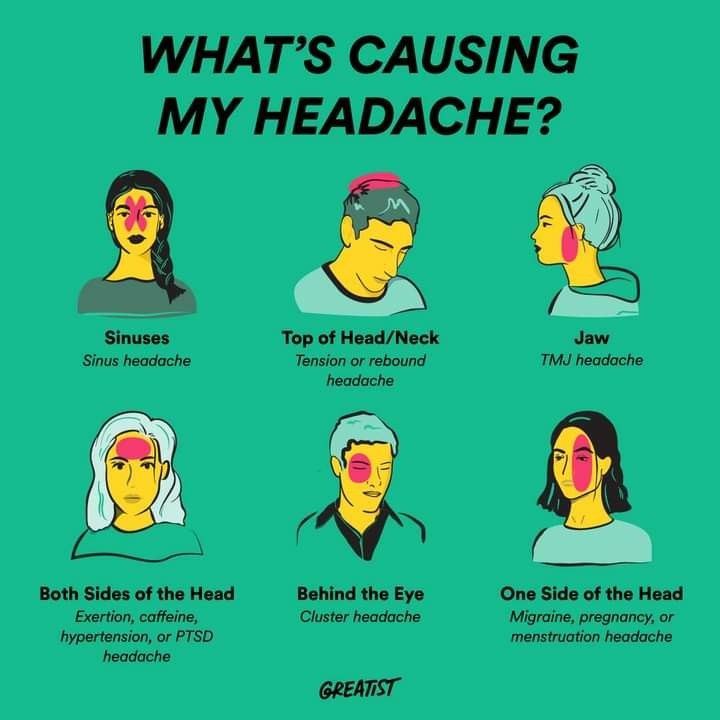 This chemical builds up in the blood as the liver breaks down the alcohol into a form that can be eliminated from the body.
This chemical builds up in the blood as the liver breaks down the alcohol into a form that can be eliminated from the body.
The effects on other body systems are also important in the symptoms of alcohol intoxication. The kidneys increase urination substantially, leading to dehydration. Blood vessels in the skin dilate, causing flushing and increased cardiac output. The liver starts working overtime to detoxify the blood of ethanol and acetaldehyde, and cannot keep blood sugar adequately regulated.
Repeated drinking can lead to liver scarring, known as cirrhosis. Certain inflammatory chemicals increase in the blood and affect various natural hormonal pathways. The stomach lining may become irritated, increasing nausea and the chance of bleeding. The extra calories consumed often become converted into fat.
Many of these disturbances of the body’s natural physiology persist the next day, long after the alcohol is gone. Dehydration plays a significant role, as does acetaldehyde.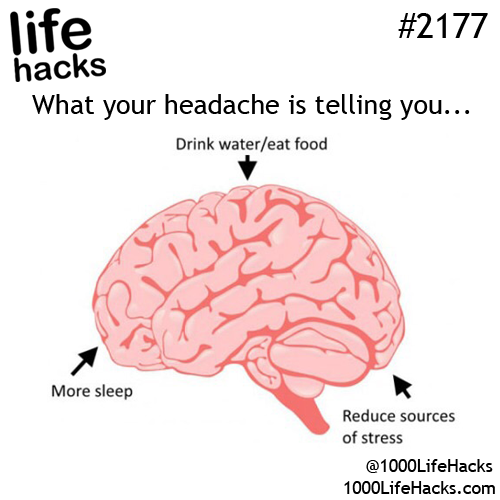 Effects on hormones, blood chemistry, the sleep-wake cycle and inflammatory chemicals are also important in the thoroughly lousy feeling we have come to know as a hangover.
Effects on hormones, blood chemistry, the sleep-wake cycle and inflammatory chemicals are also important in the thoroughly lousy feeling we have come to know as a hangover.
Most people are well aware of the presence of headache, malaise, diarrhea, loss of appetite, tiredness, nausea and sensitivity to light, sound and motion the day after binge drinking. What may be less well recognized is that manual dexterity, memory, reaction time, visual-spatial skills and attention are all adversely affected, even when your alcohol level has fallen back down to 0.
back to top
How little is enough to make an impact the next day?
Like so many other answers to science questions, “it depends.” Body weight and gender are very important factors. While five to eight drinks for the average man, and three to five drinks for the average woman, are enough to cause some degree of hangover, specific effects will vary greatly between individuals. Certain ethnic groups (Japanese, for example) have a genetically reduced ability to break down acetaldehyde, the main byproduct of alcohol, as it is first processed in the liver.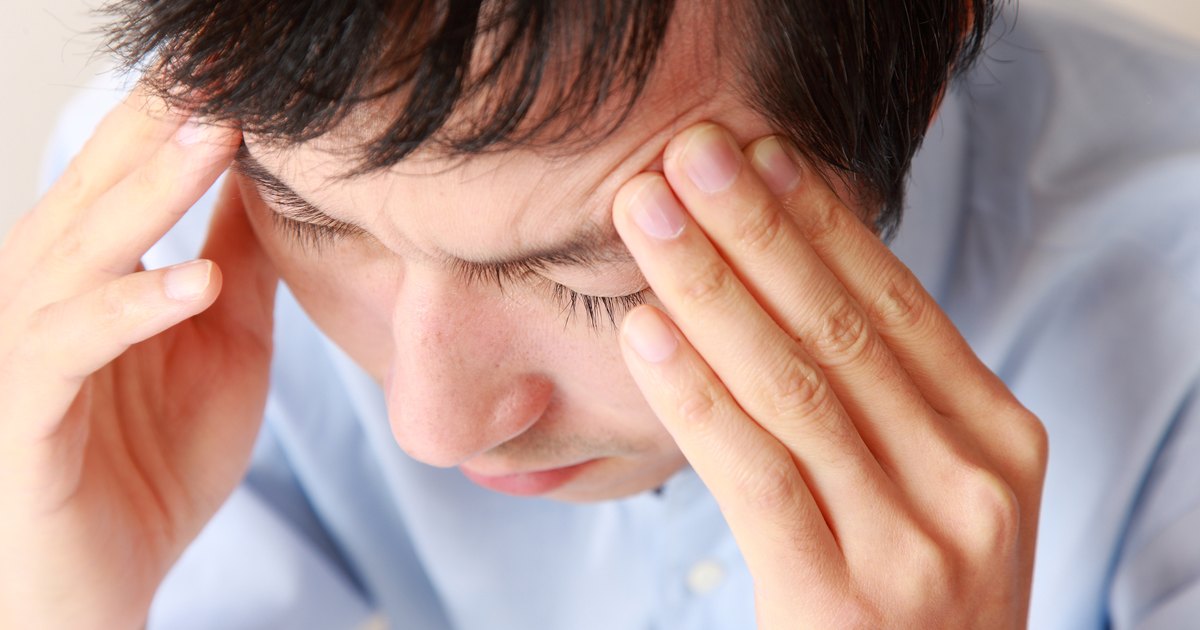 This results in more reddening of the skin ("“Asian flush”) and hangovers at lower amounts of alcohol.
This results in more reddening of the skin ("“Asian flush”) and hangovers at lower amounts of alcohol.
People prone to migraines tend to have more problems with hangovers. People who drink alcohol regularly, or those who are taking certain specific medications that affect liver enzymes, may metabolize alcohol more quickly, having fewer problems with intoxication and hangover as a result. Conversely, there are many medications that interfere with the breakdown of alcohol and acetaldehyde, worsening the consequences of drinking. A thin, Japanese teetotaling woman taking prescription painkillers will clearly have more problems with a few drinks than a 250 pound linebacker who regularly drinks four beers a night.
How fast you drink is also important. Most of us can break down about one drink’s worth of alcohol each hour. What you drink is far less important than how much, but there’s some evidence that darker beverages — whiskey, brandy, red wine, tequila — cause more problems than clear drinks such as gin and vodka. They are thought to contain chemicals called congeners that add to ethanol’s harmful effects.
They are thought to contain chemicals called congeners that add to ethanol’s harmful effects.
back to top
How long do the effects last?
Hangovers can last up to 72 hours after drinking, but most are shorter in duration. Again it depends on how much was consumed, how dehydrated you became, nutritional status, ethnicity, gender, the state of your liver, medications, etc.
back to top
Are there any effective treatments?
If you’ve consumed too much alcohol and have to work the next day, what do you do? In short, you suffer, and so does your job performance. Thinking about calling in sick? You’ll be in good company. Estimates of lost revenues due to reduced job productivity and absenteeism from alcohol run as high as $148 billion a year in the U.S. alone. Much of this expense is related to hangovers in light to moderate drinkers.
A quick Google search for "hangover cure OR treatment OR remedy OR prevention” pulls up over 2 million webpages. There are countless commercial products (Cheerz, Chaser) and homemade recipes with wildly unsubstantiated and pseudoscientific claims of benefits.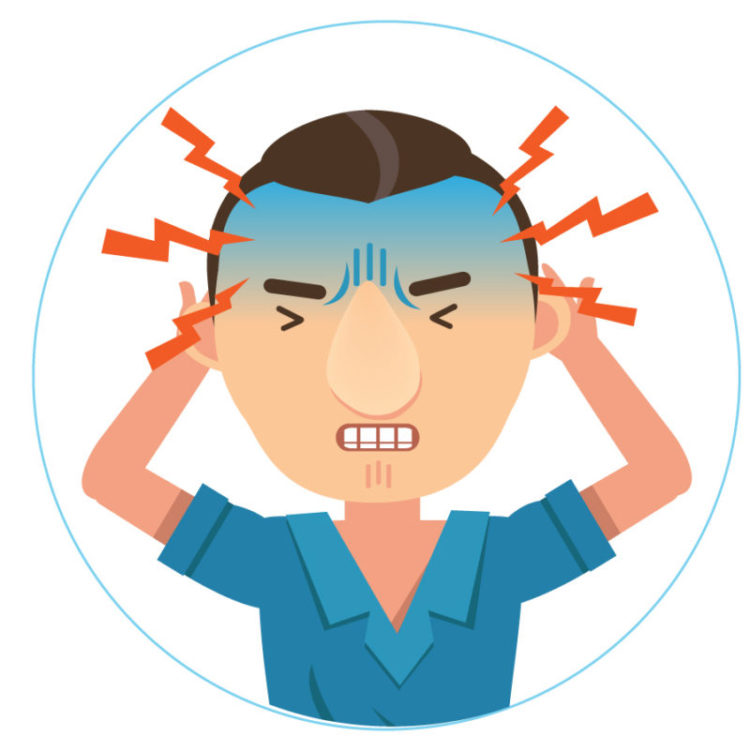 It is important to note that a recent study from the British Medical Journal concluded that there was essentially no substantial scientific evidence that any substance has proven effectiveness in preventing or treating a hangover. That being said, the authors themselves admit that very few well-designed scientific studies have ever been conducted on the subject, so it is more than possible that some of these unproven treatments might work.
It is important to note that a recent study from the British Medical Journal concluded that there was essentially no substantial scientific evidence that any substance has proven effectiveness in preventing or treating a hangover. That being said, the authors themselves admit that very few well-designed scientific studies have ever been conducted on the subject, so it is more than possible that some of these unproven treatments might work.
There is some evidence that vitamin B6 taken before drinking can be mildly helpful. An anti-inflammatory drug called tolfenamic acid has been shown to be somewhat helpful when taken during alcohol consumption. While this drug is not available in the U.S., other related medications, including ibuprofen, naproxen, and prescription nonsteroidal anti-inflammatory drugs (NSAIDs) may be similarly helpful. However, when combined with alcohol they might increase the risk of stomach bleeding. Staying well-hydrated with plenty of water is helpful. Gatorade or other fitness drinks may be better than water alone, but there is no scientific proof. A chemical called N-acetyl-cysteine may be useful in detoxifying the body from acetaldehyde buildup, but this too is an unproven treatment. Light exercise may be helpful, provided you stay well-hydrated.
Gatorade or other fitness drinks may be better than water alone, but there is no scientific proof. A chemical called N-acetyl-cysteine may be useful in detoxifying the body from acetaldehyde buildup, but this too is an unproven treatment. Light exercise may be helpful, provided you stay well-hydrated.
Here’s some advice on what to do after an evening of “overdoing it”:
- Avoid more alcohol (“hair of the dog”) — this will only increase your misery.
- Avoid further dehydration by drinking liquids (other than alcohol!) — water, chicken soup, Gatorade, whatever works for you.
- Avoid acetaminophen (Tylenol) at all costs — it can overtax your already hard-working liver, leading to dangerous swelling or even liver failure.
- Avoid unpalatable “recipes” that combine such ingredients as eggs, raw fish, Tabasco and sausage. You wouldn’t eat like that when you are at your best, so what makes you think you’ll stomach it when you’re hungover?
The very best prevention of a hangover? Don’t drink. The best cure? Time.
The best cure? Time.
back to top
How to relieve a headache after alcohol, how to get rid of a headache when drinking? Traditional methods + advice from a narcologist
CONTENTS
1. Causes of pain in the head after drinking alcohol or hard drinking
2. Description of the mechanism of headache development
2.1. General intoxication
2.2. Influence on blood vessels
2.3. Dehydration
2.4. Endocrine Disorders
2.5. Other causes
3. How to relieve a headache when drinking heavily
3.1. Headache relief in case of mild poisoning
3.2. Relieving headaches in binge drinking and chronic alcoholism
4. Medications that can be used for headaches after alcohol
5. Non-drug ways to deal with headaches after alcohol
6. What to do so that your head does not hurt
7.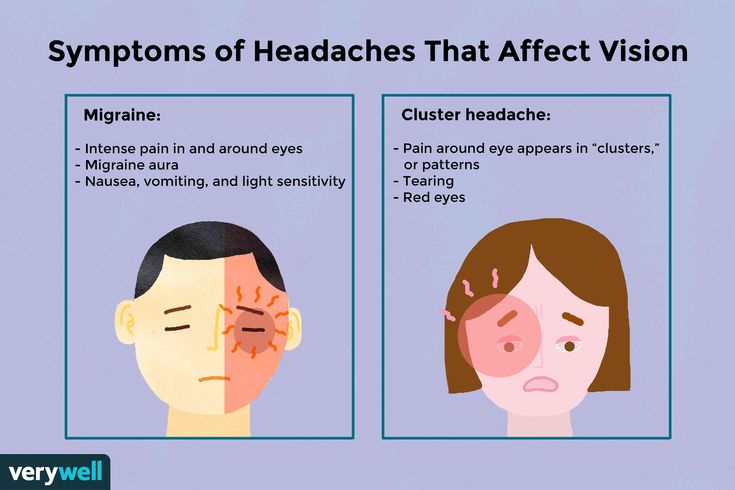 What not to take for a headache after a binge
What not to take for a headache after a binge
Drinking alcohol causes such harm to the body that it would be surprising if the head did not hurt.
Headache affects the well-being and obviously needs to be eliminated. Narcologists use different methods to relieve pain. Headache is relieved by medication, but people who often drink alcohol often use folk methods. It is very important to consult a specialist if independent attempts to get rid of a headache have not been successful.
Causes of pain in the head after drinking or drinking
Cephalgia (the medical name for headache after alcohol) occurs against the background of painful factors caused by the harmful effects of ethanol, which is essentially a neurotoxic poison. Even small amounts of drunk alcohol have a negative effect on the brain, heart, liver, and other organs.
Alcohol has a destructive effect on the body at the cellular level:
- cell membranes are destroyed;
- organelle functions are disturbed;
- the cell nucleus is destroyed.
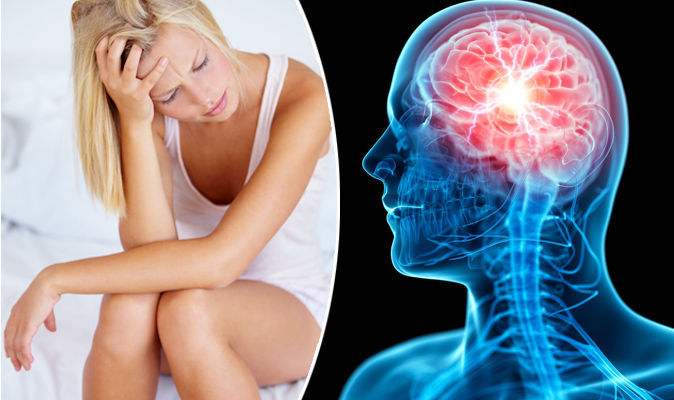
Headache is a consequence of the influence of alcohol on brain neurons and a consistent reaction from poisoned body tissues.
Another reason why pain sensations are formed is intoxication with ethanol breakdown products. One of the most dangerous is acetaldehyde, which has particularly toxic properties. Able to accumulate in the body immediately after the end of the euphoria phase. A person experiences a hangover and headache after alcohol due to the fact that acetaldehyde affects the body.
Description of the mechanism of headache development
A small amount of quality alcohol drunk the day before usually does not cause any side effects. But it also happens that even one glass of strong alcohol can cause a headache. It all depends on the individual characteristics of the body and the state of human health.
The fact is that alcohol combines several properties that affect the body in different ways. Elements of alcohol are easily absorbed by cells and tissues, enter into reactions with them and at the same time have a detrimental effect on them.
Doctors identify several mechanisms, each of which can cause hangovers and headaches.
General intoxication
It is believed that this is the main cause of pain. The decay products of ethanol poison the liver and brain cells. Hangovers and headaches usually disappear soon as toxic metabolites are eliminated, but the liver has already received an undeserved load, which can later lead to alcoholic hepatitis and even cirrhosis.
Effect on blood vessels
Ethanol constricts blood vessels and causes vascular spasms. As a result, brain cells are deprived of a full-fledged supply of oxygen, as a result, a headache appears. The spasm is removed with medication, but the weakness does not go away for a long time. A dangerous condition that can cause a stroke.
Dehydration
This is a serious negative consequence of drinking alcohol. In the body, the amount of cellular fluid decreases, the blood thickens. Intoxication becomes pronounced, the headache is very strong.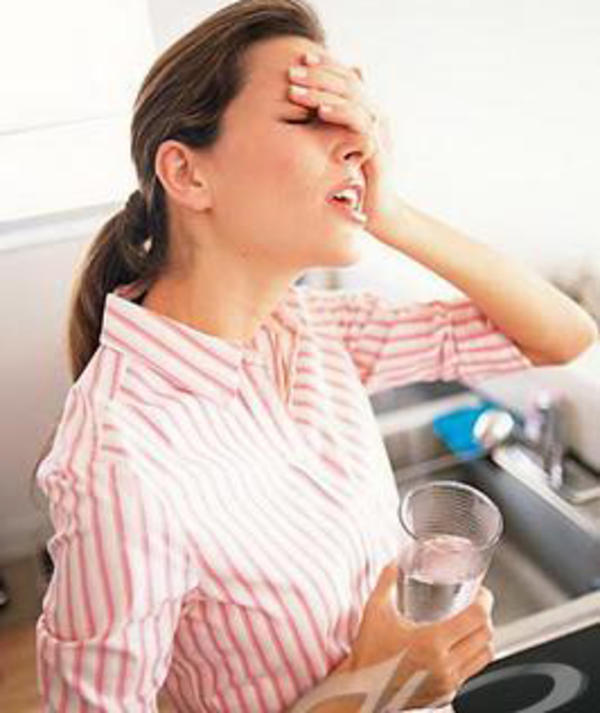 The condition is aggravated by nausea and vomiting. Dehydration is dangerous by thrombosis.
The condition is aggravated by nausea and vomiting. Dehydration is dangerous by thrombosis.
Disorders of the endocrine system
A serious consequence of prolonged alcohol use. A person experiences severe pain, including headaches. Accompanied by rapid weight gain or weight loss, deterioration of cognitive functions.
Other causes
Headaches can be caused by more than just alcohol. The reason may be a snack that a person consumed the day before along with alcohol. Very often these are salty and fatty dishes, smoked meats, soda, an abundance of seasonings. Such products put an additional load on the liver, which in turn slows down the metabolism of ethanol. There is another side of the coin - drinking alcohol on an empty stomach. In this case, the concentration of metabolites reaches the limit, the hangover is more pronounced.
If you have a headache immediately after drinking alcohol, you should see a doctor. It is possible that there is an individual intolerance to alcohol or its components.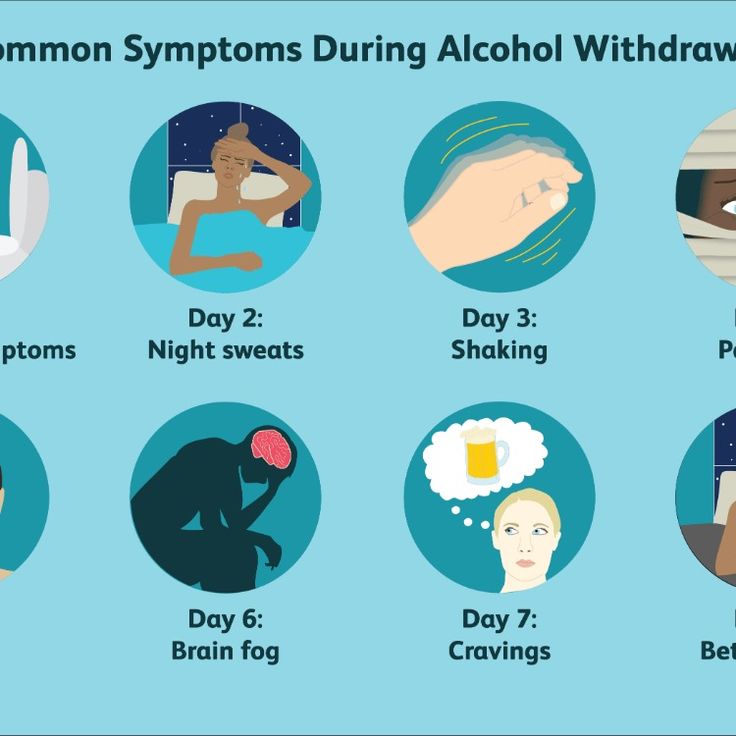 Signs of an allergy may include swelling, redness, and altered breathing. This is the case when going to the doctor can save a life.
Signs of an allergy may include swelling, redness, and altered breathing. This is the case when going to the doctor can save a life.
How to relieve a headache when drinking?
Doctors take different approaches to the treatment of headaches associated with binge drinking.
For example, alcohol withdrawal and mild intoxication can be stopped with the help of folk remedies that are always at hand, or you can use light drug therapy.
Cephalgia in people with acute addiction is aggravated by hypertension, chronic intoxication, exacerbation of chronic diseases. Here treatment is required complex.
Headache relief in case of mild poisoning
In case of household alcohol poisoning, headache can be stopped in simple ways:
- contrast shower without temperature changes;
- cold compress on forehead;
- mineral water, fruit drink, cabbage brine to restore water balance;
- lie down in a quiet environment, sleep if possible.
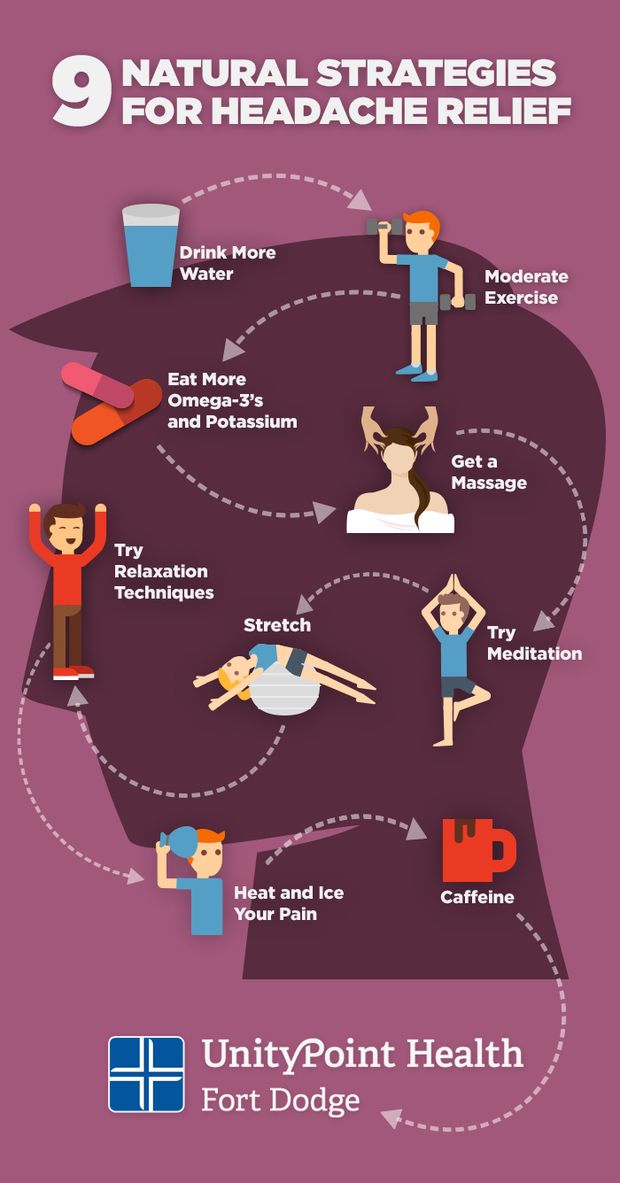
If the poisoning is more pronounced, then the following should help:
- gastric lavage with a light manganese solution;
- cabbage pickle without vinegar;
- intake of enterosorbents;
- decoction of St. John's wort, motherwort, wild rose;
- taking mild painkillers: analgin, ibuprofen, aspirin.
In case of mild alcohol poisoning, do not relieve a headache with a glass of alcohol. This method is only applicable to stage 2 alcoholics.
If the condition has not improved, then the only way out is to call the doctor.
Removal of headaches in binge drinking and chronic alcoholism
Here, the treatment should be complex and take place in several stages:
- detoxification dropper for blood purification, normalization of water-salt balance and elimination of toxins;
- taking symptomatic drugs;
- taking nootropics and anxiolytics to normalize the mental state.
Even after the doctors stopped drinking and eliminated the patient's withdrawal symptoms, the headache may persist.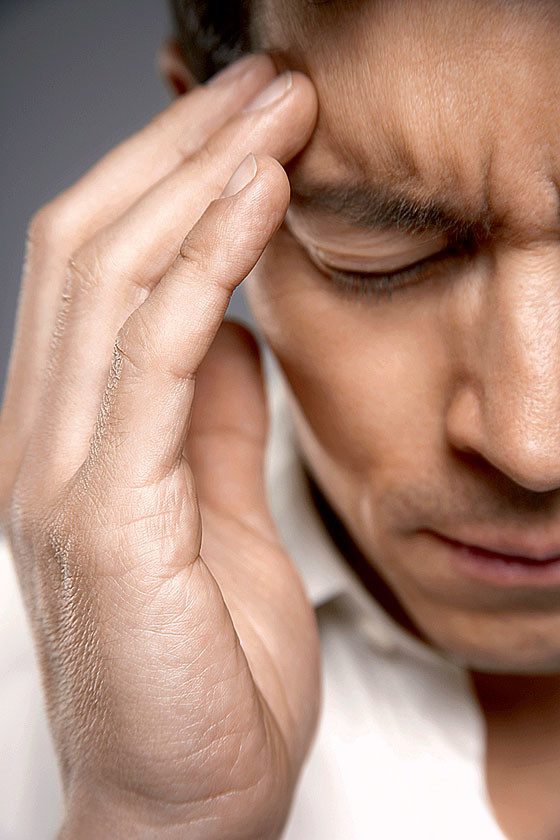 This is due to mental disorders caused by prolonged alcoholism, or residual cravings. In such cases, psychotherapy is prescribed.
This is due to mental disorders caused by prolonged alcoholism, or residual cravings. In such cases, psychotherapy is prescribed.
Medicines that can be used for headaches after alcohol
It is advisable not to self-medicate yourself. Only a doctor based on a lot of data can prescribe suitable drugs. However, to relieve morning headaches without a doctor's prescription, you can take the following medicines:
- Aspirin. It thins the blood, enhances its flow to the vessels of the brain, and partially eliminates edema. Contributes to the normalization of the physical condition.
- Absorbent. The most accessible, popular and inexpensive absorbent is activated carbon. Helps to bind and accelerate the elimination of toxins and ethanol breakdown products. Take 1 tablet per 10 kg of body weight for 2-3 days.
- Potassium and magnesium preparations. Their reception contributes to the normalization of the activity of the heart and blood vessels, restores the transmission of nerve impulses.

- Antioxidants. They prevent toxic poisoning of the brain and liver, contribute to the normalization of sleep, produce the hormone dopamine.
- Hepatoprotectors. Their intake has a good effect on the normal functioning of the liver, contributes to the restoration of its cells.
- Neurometabolic stimulants. Taken to improve brain function and stimulate cognitive functions. The drugs reduce vegetative disorders.
Of course, taking drugs can significantly improve the condition, with the right approach, the body will return to normal very quickly, and the head will stop hurting. But it’s not enough just to take a pill, you need to create conditions under which the medicine will act in the right direction - to recover from alcohol poisoning.
Non-drug ways to deal with headaches after alcohol
Headaches can be relieved without medication. Doctors recommend using the following methods:
- Contrast shower without visible temperature difference.
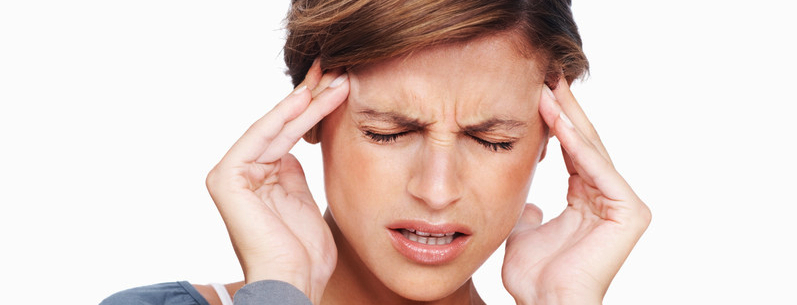 The procedure stimulates blood circulation, relieves discomfort.
The procedure stimulates blood circulation, relieves discomfort. - Slow walks in the fresh air. Best suited park, forest or waterfront. When it's hot, it's better to stay at home.
- Large fluid intake. It is best if these are simple drinks at room temperature: water, herbal tea and decoctions, unsweetened fruit drink. The head can hurt from dehydration, and restoring the water-salt balance will make it possible to get rid of the headache faster.
- Organization of the correct daily routine. A good rest with good sleep and calm daytime communication will work to relieve headaches.
If pressure allows, you can drink coffee, do exercises.
Click here to see the conditions, tariffs and prices for treatment
What to do so that your head does not hurt
The more and more often a person consumes alcohol, the higher the risk of developing conditions that seriously threaten life: a heart attack, stroke, hypertensive crisis, cardiac arrhythmia.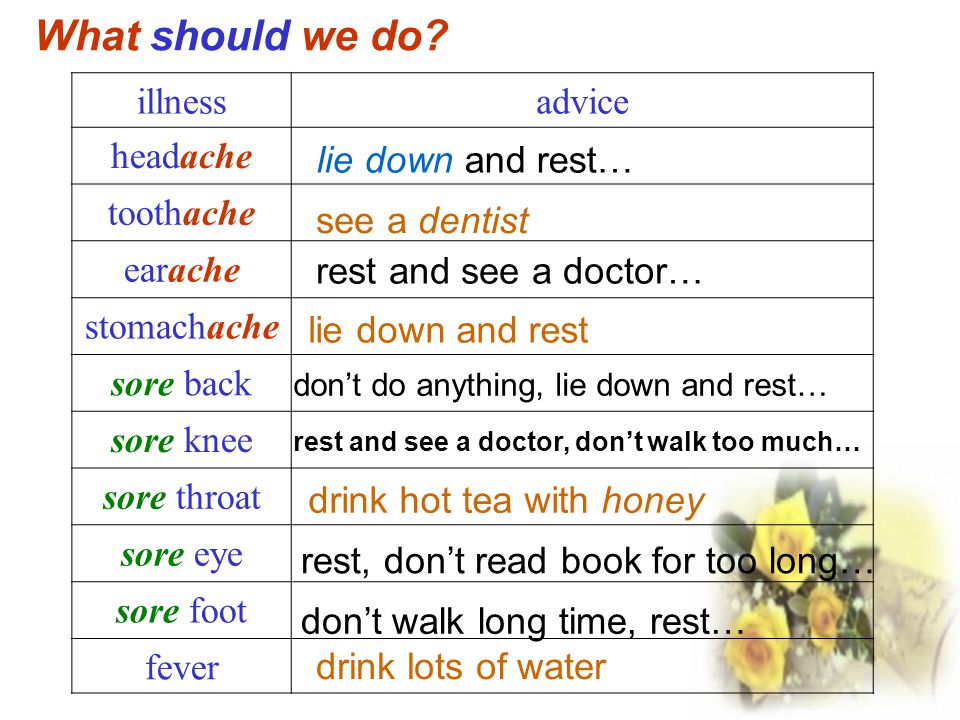
Headaches can be avoided if you follow simple rules:
- Take only high-quality alcohol from trusted manufacturers, check for certificates and documents.
- Never drink alcohol of unknown origin. It may contain methanol: a deadly poison that leads to blindness, and in the worst case, death.
- Be sure to take alcohol only with a good snack that does not overload the liver. A little fatty food or a butter sandwich will slow down the absorption of alcohol into the bloodstream.
- Do not exceed the safe dosage, drink at least half a glass of water after each serving of alcohol.
- It is recommended to drink alcohol no more than twice a week (the best prevention of headaches is not to drink at all).
- Regularly undergo scheduled medical examinations or examinations in order to identify possible pathologies or malfunctions of internal organs as early as possible.
What should not be taken for headaches after binge
In order for the condition after binge to really normalize, so that a person does not get worse, you need to get out of binge correctly.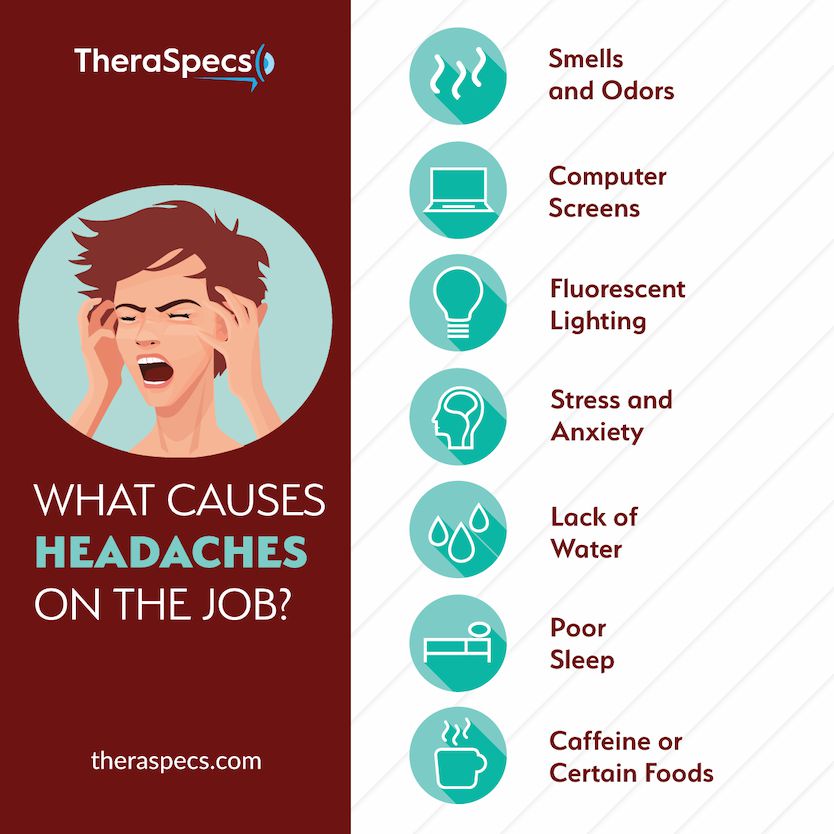 For example, it is categorically not recommended to treat a headache even with a small dose of alcohol - this method is only suitable for patients diagnosed with stage 2 alcoholism. The fact is that the metabolism of ethanol is constant, it does not depend on the amount of alcohol consumed. A new portion of alcohol will overload the liver, since it has not yet had time to “utilize” the alcohol taken the day before. A light-drinking person after a morning glass will get drunk again, or he will simply vomit.
For example, it is categorically not recommended to treat a headache even with a small dose of alcohol - this method is only suitable for patients diagnosed with stage 2 alcoholism. The fact is that the metabolism of ethanol is constant, it does not depend on the amount of alcohol consumed. A new portion of alcohol will overload the liver, since it has not yet had time to “utilize” the alcohol taken the day before. A light-drinking person after a morning glass will get drunk again, or he will simply vomit.
In rare cases, after a morning hangover, relief comes, but then the head starts to hurt again. As a result, such a vicious circle threatens to turn into a binge, from which it is much more difficult to get out than just getting rid of a headache.
Cucumber pickle also does not help everyone, especially if you drink it in excess. Of course, it will help restore water balance and electrolyte deficiency, but if you overdo it, you can seriously overload the kidneys, as a result, the removal of fluid from the body slows down. It is best to take cabbage pickle, but also in reasonable amounts. And, of course, no marinades!
It is best to take cabbage pickle, but also in reasonable amounts. And, of course, no marinades!
Do not take a hot bath and shower, do heavy physical exertion.
Paracetamol and preparations with this active substance are not suitable for relieving headaches:
- panadol;
- efferalgan;
- ibuclin;
- Tylenol;
- ifimol;
- apotel;
Paracetamol is also found in many antipyretic powders that are taken as hot drinks.
Paracetamol is dangerous for the treatment of headache after binge because it has a certain peculiarity in the metabolic processes: the absorption of the drug requires the participation of liver enzymes, and this is an additional burden on the body, which already suffers from alcohol poisoning. In combination, alcohol and paracetamol can cause toxic liver damage, liver failure.
Why does the head hurt after alcohol
Even a small portion of alcohol can cause a headache in 80% of people.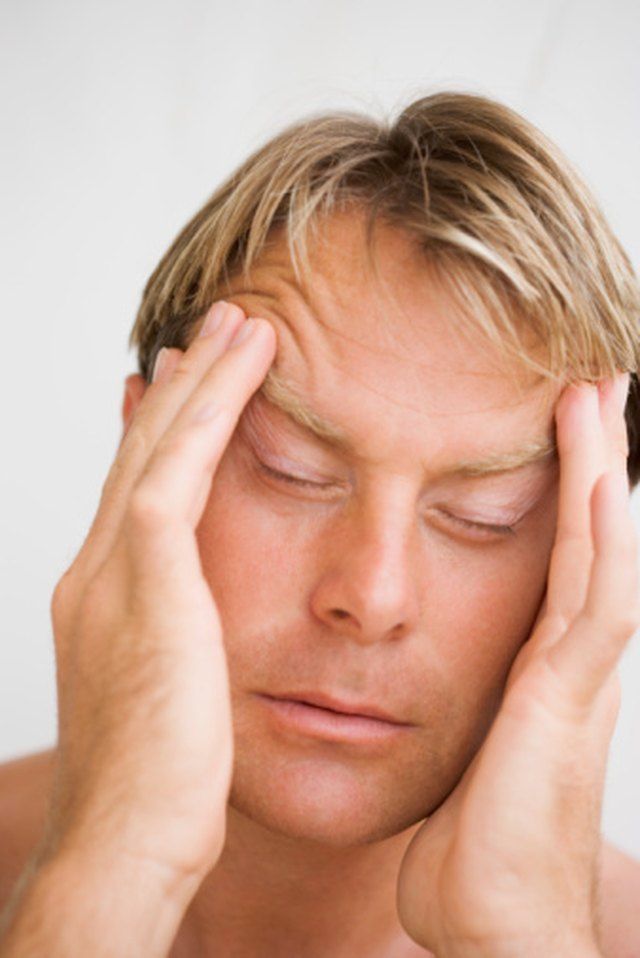 Why and how to escape from this headache, our neurologist Daria Zakharovna Korobkova told.
Why and how to escape from this headache, our neurologist Daria Zakharovna Korobkova told.
📎 What kind of headache is this?
This is pain that develops within 3 hours after drinking alcohol and disappears within 72 hours after you stop drinking alcohol. She has at least one of the characteristics:
- double-sided;
- pulsating;
- aggravated by physical activity;
- or may be pressing in nature and localized in the frontal region.
A headache that develops immediately after a person drinks alcohol is less common than a hangover headache (which begins when the blood alcohol level drops).
The intensity of pain depends on the quantity and quality of the drink, as well as on the individual characteristics of the person.
Alcohol also often triggers a migraine or cluster headache attack if the person suffers from these conditions. At the same time, only certain drinks can cause seizures. For example, red wine can provoke, and cognac - no.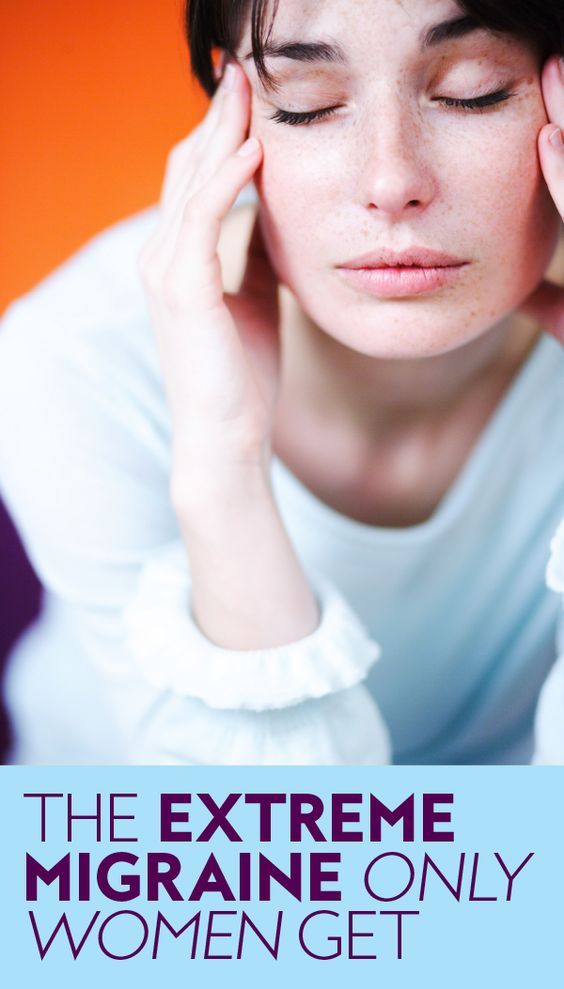 This moment is purely individual: therefore, try to identify your alcohol provocateur with the help of a diary and refuse it.
This moment is purely individual: therefore, try to identify your alcohol provocateur with the help of a diary and refuse it.
📎 What causes this headache. A bit of science.
Its mechanism, oddly enough, is not fully understood. But, probably, several factors are at work:
▪️ Alcohol affects the central nervous system and cerebral vessels
It is believed that alcohol can dilate the vessels of the meninges, which can manifest itself as a headache. In addition, it is believed that it also acts on the pain system of the brain. It is known that alcohol has a short-term analgesic property, however, after its withdrawal (especially when a significant amount is consumed), the so-called hyperalgesia occurs - an increased sensitivity of the body to pain stimuli.
▪️ Dehydration
Alcohol has diuretic properties: liquid is removed from the body along with urine, the amount of blood decreases and the blood flow slows down, the removal of carbon dioxide is difficult.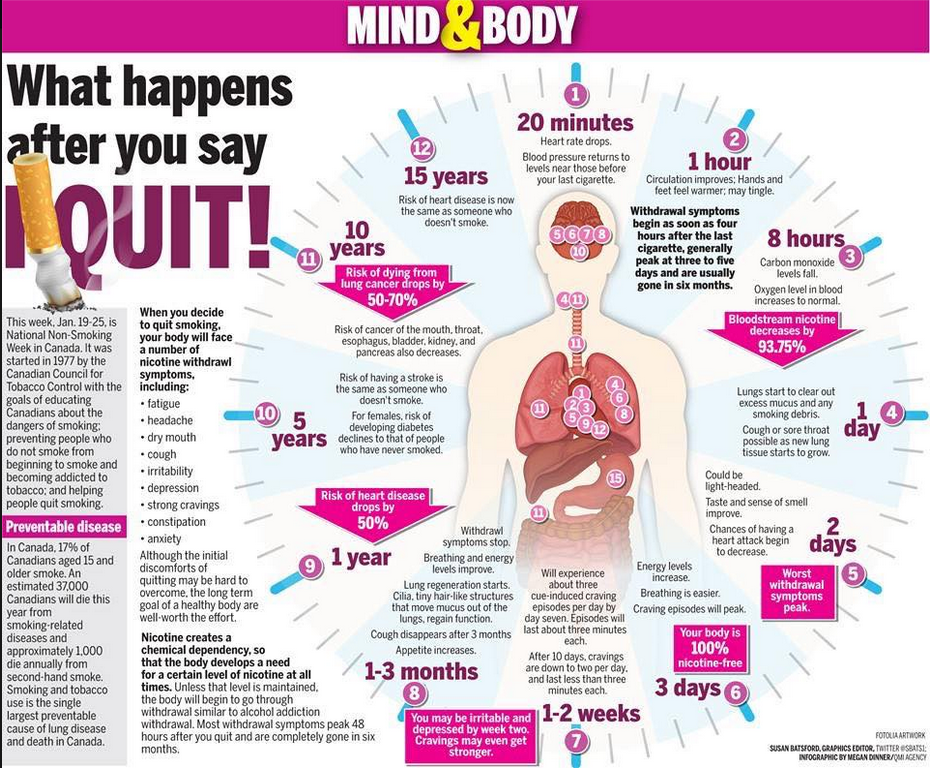 Vomiting and diarrhea associated with alcohol intoxication also lead to dehydration.
Vomiting and diarrhea associated with alcohol intoxication also lead to dehydration.
▪️ Intoxication
Acetaldehyde is a breakdown product of ethanol that occurs in the human body. When there is a lot of it, it has a toxic effect on brain cells, disrupting the work of neurotransmitters and changing the electrical activity of neurons.
▪️ Sleep is disturbed
Alcohol negatively affects the phase of REM sleep, in which the brain processes and remembers the received information and synthesizes various proteins involved in important brain processes.
What else: dark alcoholic beverages (whiskey, cognac, brandy) contain significantly more congeners - of other toxic chemical compounds other than ethanol (these are acetone, tannins, fusel oils, methanol), which are fermentation by-products. Therefore, it is believed that the risk of a hangover headache from dark drinks is higher.
📎 What to do with a hangover headache?
The classic headache after drinking alcohol usually goes away on its own within 72 hours.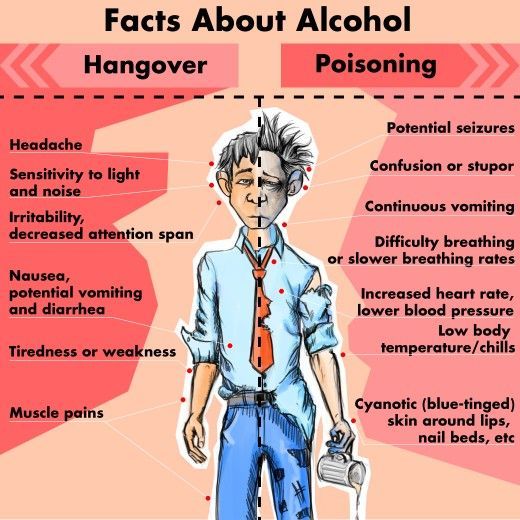 What else can help:
What else can help:
✅ sleep in a cool room or walk in the fresh air;
✅ compensation for dehydration: give preference to water without gas, and then drink tea or coffee. Better yet, drink two glasses (but no more) of sodium-magnesium mineral water - it makes up for the electrolyte deficiency after drinking alcohol;
✅ light snack (toast and a glass of juice, honey). Alcohol helps lower blood glucose levels, and a light snack will help replenish it;
✅ analgesics: aspirin, ibuprofen and other non-steroidal anti-inflammatory drugs. But not paracetamol - if alcohol and its metabolites have not yet been eliminated from the body, taking paracetamol can increase their toxic effects on the liver.
📎 What not to do
❌ Relieve a hangover with another portion of alcohol.
❌ Overeating.
❌ Taking hot showers/baths and engaging in sports or physical labor if alcohol and its metabolites have not yet been eliminated, there is a risk of stress on the heart.

